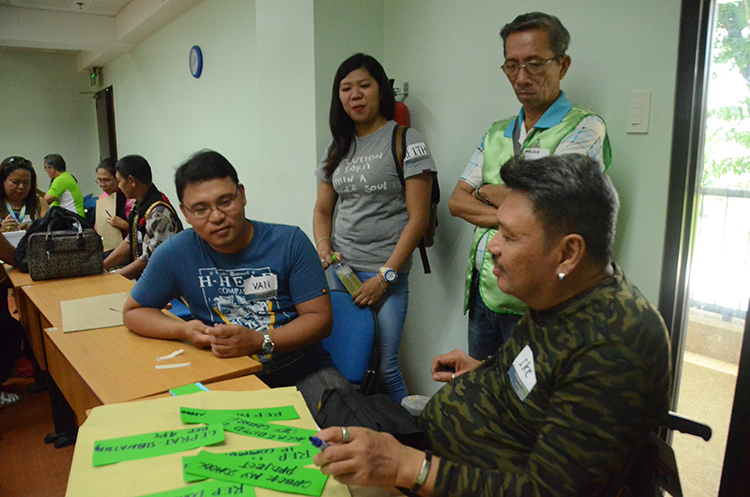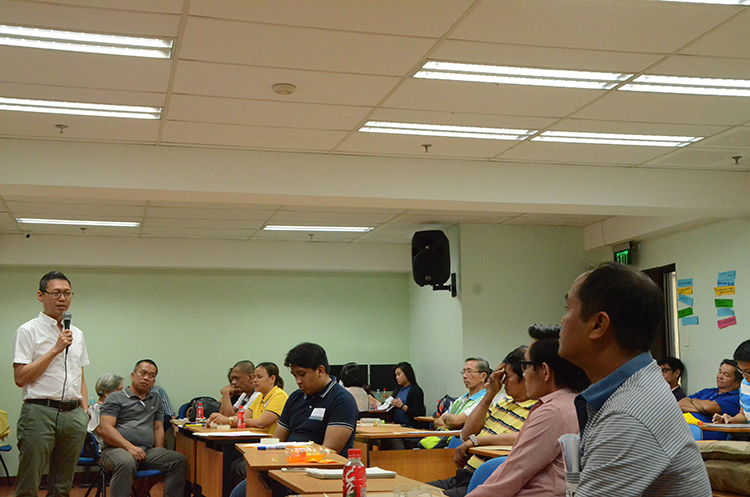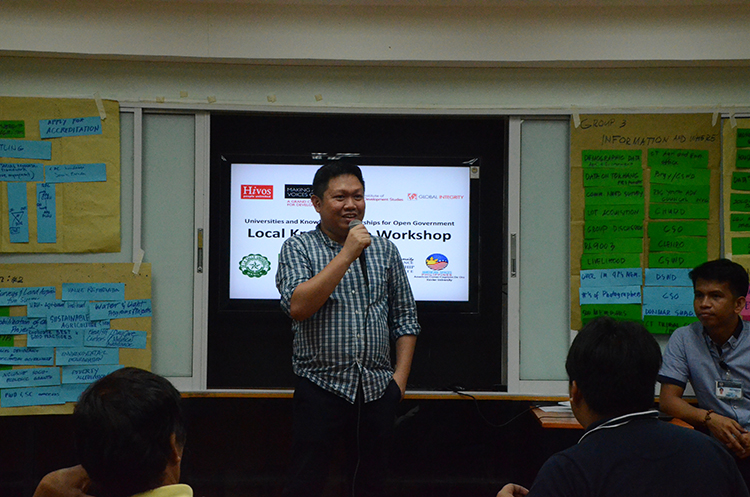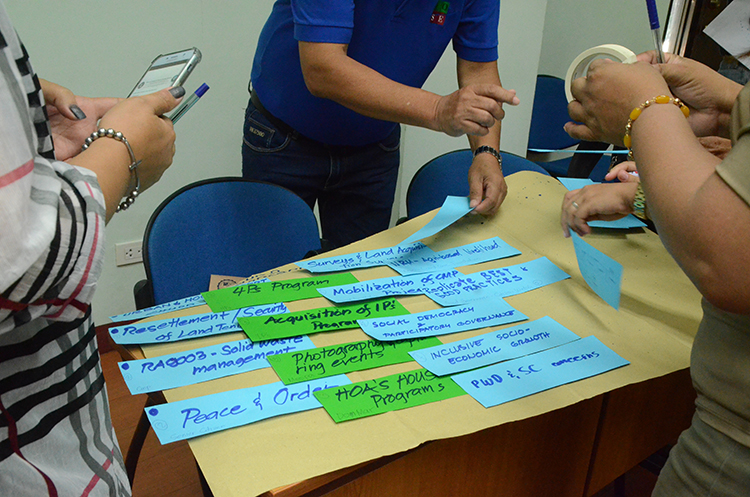ACTIVE CIVIL SOCIETY. Members of Cagayan de Oro City's civil society organizations participate in the CSO Local Knowledge Exchange and Consultation workshop on May 2 at XU-AVR8. Photo by Alex Belen.
By Alex Belen and Stephen Pedroza
The Governance and Leadership Institute (GLI) of Xavier University - Ateneo de Cagayan and De La Salle University’s Jesse M Robredo Institute of Governance recognize the knowledge resource and expertise of academic institutions to help address policy problems in the local level.
To this end, XU-GLI and DLSU-JMRIG joined forces to build a knowledge hub in Northern Mindanao for civil society organizations (CSOs) to improve their engagements in the local governance and grassroot empowerment.
The CSO Local Knowledge Exchange and Consultation workshop, conducted on May 2 at XU-AVR 8, served as a venue for understanding the role of universities to strengthen the capacity of local CSOs and for the latter to share their existing practices, tools, technologies, and challenges.
"Good governance will help us achieve our visions, goals, and desires toward sustainable development," said DLSU-JMRIG director Dr Francisco Magno in his presentation. "For this partnership, the most important here is to learn from our local partners and document the local knowledge. There is a need to improve our documentation, in capturing the experiences of civil society organizations. ... This is where the academe can come in as the infomediary."
This partnership will open a host of opportunities to all stakeholders involved, such as participating in the implementation of local projects, applying new mechanisms of providing solutions, and addressing bottlenecks in the delivery of basic social services.
"Universities are more sustainable than LGUs (with 3-year term) and local CSOs (which rely on external funding) to engage on local policy issues," Magno said. "Seen as ‘neutral actors’ in local governance, the interests of universities are on the access of data for research, curriculum development, and community engagements."
UNIV ROLE. DLSU-JMRIG director Dr Francisco Magno says: "Universities are in the position to help address local policy problems. Universities can become think-tanks and capacity builders of CSOs." Photo by Belen
Universities can also engage in the monitoring of local public service delivery by ensuring right use of data, mobilizing volunteers, and partnering with local CSOs and LGUs to serve as intermediary in the evaluation of local policies and programs.
Among successful examples of monitoring projects were the Monitoring of Water, Sanitation and Hygiene (WASH) in Malungon, Sarangani, Road Watch by the Concerned Citizens of Abra for Good Government, and the Text Book Count by G-Watch.
The partnership will also be beneficial to students as this will allow them to develop their critical thinking skills, leadership and interpersonal skills, increase the relevance of their courses, gain real-world experience, learn to become active citizens, and work with people from diverse backgrounds.
“The faculty of the respective universities, in turn, will be able to motivate students to make a difference, enhance relevance and interest in students’ engagement, [and] build stronger links between research, teaching, learning, and community service,” Magno said.
The benefits of the partnership will also extend to the partner communities of the university, particularly in the developing new programs and enhancing existing ones, serving the marginalized sectors better, influencing future leaders, and accessing their research expertise.
The project outputs include an online knowledge portal which can be accessed by local CSOs to share and acquire information on participatory local governance and open government, an offline portal or a mini-library to be based at Xavier Ateneo, and a compendium of local case studies on CSOs’ challenges, lessons, and best practices.
LOCAL KNOWLEDGE WORKSHOP. DLSU-JMRIG project manager Ian Jason Hecita during the CSO Local Knowledge Exchange and Consultation workshop on May 2 at XU-AVR 8. Photo by Belen.
Besides Xavier Ateneo and De La Salle Manila, Ateneo de Naga – Center for Local Governance and the Center for Local Governance and Indigenous Peoples’ Studies Center of the Central Philippine University also form part of this project.
The Open Government Partnership (OGP) is an international platform where member governments commit to implement national programs that: (1) foster transparency and accountability in governance; (2) promote citizens’ participation in public decision-making; and (3) leverage information and communications technology for citizen participation.
The Philippines is a founding member (since 2011) of OGP and its previous OGP commitments included: Department of Interior and Local Government’s Seal of Good Local Governance (formerly the Good Housekeeping), Full Disclosure Policy, and Bottom-Up Budgeting; Department of Budget and Management’s Open Data Philippines; and the Kapit-Bisig Laban sa Kahirapan – Comprehensive Integrated Delivery of Social Service (KALAHI-CIDSS) Project.
In June, XU-GLI will start the collection of case studies, tools, technologies, and applications used by national and local CSOs in monitoring local public service delivery.
Both the online and offline knowledge portals are expected to be launched in July. ∎
CSO WORKSHOP. The CSO Local Knowledge Exchange and Consultation workshop serves as a venue for understanding the role of universities to strengthen the capacity of local CSOs and for sharing their existing practices, tools, technologies, and challenges. Photo by Belen.




